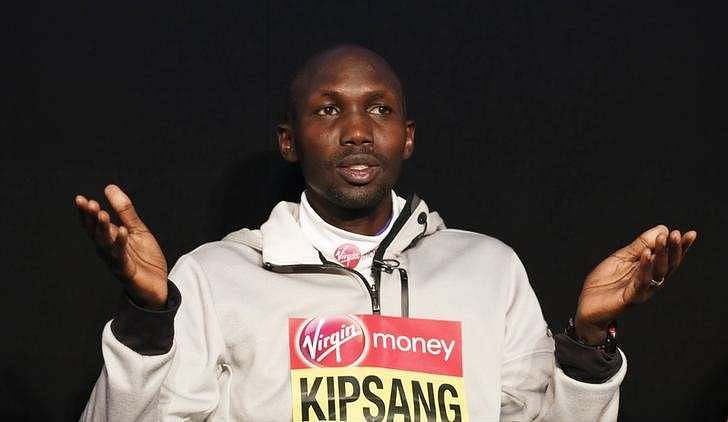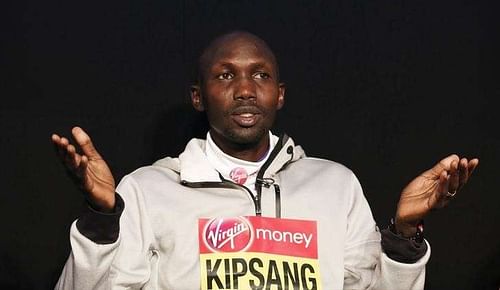
London Marathon: Kenya's runners welcome new anti-doping law

The elite Kenyan contingent in Sunday's London marathon have welcomed the country's progress on anti-doping and said on Wednesday the public should believe they and most of their compatriots are running clean.
The Kenyan government passed a bill on Tuesday that will allow the setting up of a viable anti-doping operation in the east African country and will make the use of performance-enhancing drugs a criminal offence.
"Once the President (Uhuru Kenyatta) gives his assent that gives us the go-ahead," twice London marathon winner Wilson Kipsang told a news conference featuring the top four finishers from last year, all Kenyan.
"Nothing was being done before because there was no policy or structure but now they can proceed."
Kenyatta has said he would sign the bill to ensure that Kenya was not barred from this year's Rio Olympics.
"There is a wrong perception that all Kenyan athletes, or all athletes, are cheating. If someone is, let them be punished, but let the clean athletes run. We want to create that confidence that we are clean," added Kipsang.
Defending London marathon champion Eliud Kipchoge also welcomed the new law that finally lifted the shadow of a possible Olympic ban for the distance powerhouse that has been rocked by more than 40 positive tests in recent years.
"That's what WADA (World Anti-Doping Agency) was waiting for in Kenya, so we are safe," he said.
"We are working very hard in training and can assure the public we are clean. It's the love of sport that makes us work so hard -- I invite you guys to come to Kenya to see our sessions."
Clean Racing
London marathon organiser Hugh Brasher said his organisation and fellow major races were doing all they could to fight doping, having been caught out before.
London is part of the World Marathon Majors group -- along with Tokyo, Boston, Berlin, Chicago and New York – and they have combined to produce what Brasher described as the "biggest privately-funding drugs testing operation" in sport.
"We are doing absolutely everything we can to have clean racing," Brasher said.
"Any male athlete running under two hours, 10 minutes and any female under two hours, 27 minutes wishing to compete in the Marathon Majors must enter the testing pool, which sees six out-of-competition blood tests in addition to IAAF (International Association of Athletics Federations) or national federation testing.
"So with athlete biological passport testing, which is proven to be the most effective method, we are determined to have a clean sport and one I think the public will support."
Brasher said his organisation was continuing to pursue women's 2010 winner, Russian Liliya Shobukhova, who has since been banned, for her London marathon winnings.
"We have taken a court case against her to recover the money she fraudulently won from other athletes from her performances in London," Brasher said.
"She was caught by athlete biological passport testing. We are absolutely determined to stamp it (doping) out and I believe so are all the athletes lined up here."